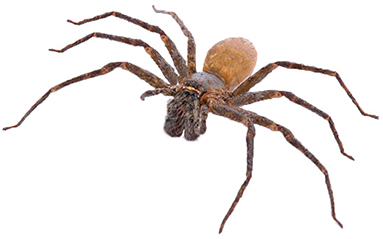Some of the most commonly experienced phobias are arachnophobia, or fear of spiders. However, there are many more reasons that spiders exist than just that! In fact, there are 527 species which number only 1% of all spider species in the world.
There are over 30,000 spider species in the world. They can serve as natural pest controllers, balance predators and prey populations and aid people with their highly-developed senses to find food. Here they are:
Table of Contents
#1. Spiders eat household pests
Professional pest control cleaners can help keep your home free of creepy crawlies, like ants, roaches, and flies. Homeowners who want to set the trap in their own home and are looking for assistance with keeping spiders out can use low-voltage electric grid traps.
Black widow spiders, which are dangerous to humans, often avoid long-legged cellar spiders by climbing up the walls.
#2. Spiders benefit crops
Agriculture is crucial for the world. We need crops to feed ourselves, but the animals we eat also need crops. In the fields, there’s a wide variety of pests like aphids and caterpillars who can ruin our harvests if we don’t kill them with spiders.
According to Norman Platnick, a spider expert from the American Museum of Natural History, spiders act as a ‘natural pesticide’ by consuming these insects and keeping our harvests enjoyable and healthy. Vestaron Biotech has spent years developing a “biopesticide” that works by exploiting funnel-web venom.
#3. Spiders are good for gardens
When pests get out of hand in your garden, rely on spiders. They are natural predators that feed on a variety of harmful pests, like moths and aphids, as well as other bugs like weevils and mosquitoes. Ladybugs, birds, and other beneficial insects can help too. However, studies show that spiders are the best at catching these bugs.
#4. Spiders kill off disease-carrying insects
Insects often carry diseases and spread them in places you may not expect, such as your home or garden. Fleas, flies, and cockroaches can spread plague, typhoid, cholera and more.
Mosquitoes also spread illnesses that kill more people each year than any other animal. Spiders weave webs to catch small insects and hinder the spread of disease.
#5. Spider venom can treat medical conditions
Black widows are distinguishable from other spiders because they have venom. The reason for this is that their venom causes nausea, muscle aches, and even potentially death for humans. This ability has potential medical benefits.
Spiderlings and eggs of the black widow spider contain venom. Research on the effects of the venom on cancer cells looks promising. There’s potential for a molecule in the funnel-web spider’s venom to delay brain strokes.
#6. Spider venom has the potential to replace opiates
The opioid epidemic claims the lives of thousands of people every year. Scientists are searching for a less addictive alternative to painkillers. One potential solution may be found in spider venom, with Yale University releasing a study just last year detailing how to rifle through millions of toxins and find the best ones for your needs. The molecules found in tarantula venom have shown promising results, but have not yet been tested on humans.
#7. Spider silk also has medicinal qualities
Spider webs can be used for medical purposes as well. For example, in ancient Greece and Rome, they used spider silk to dress soldiers’ wounds. Silk is protein-based and biocompatible.
Scientists are still researching the potential of spider silk outside of it’s use in etching tools. In the UK, a team created artificial spider silk “bandages” with an antibiotic component.
#8. Spider silk inspires engineering innovations
When it comes to spider silk, the real thing just can’t compare. After examining a real spiderweb in detail, scientists have started experimenting with lab-made silk that can be used in bulletproof clothing, parachutes and nets — and more! If mass production of this silk is possible, it could even replace Kevlar. Why would we need to farm spiders? Spiders will eat each other, so there’s not much point in doing mass production through farming.
#9. Spiders are a food source for other animals
The life cycle of a spider involves predators such as birds, lizards, and fish. However, the most important prey for spiders are insects. In desert environments, humans eat spiders. It is also common to find them as a delicacy in places like Cambodia since food insecurity is on the rise.
#10. Spiders are an essential part of the ecosystem
The health of the earth relies on biodiversity. Without spiders, it would set off a dangerous domino effect that would destroy everything from bugs to the world as we know it.

